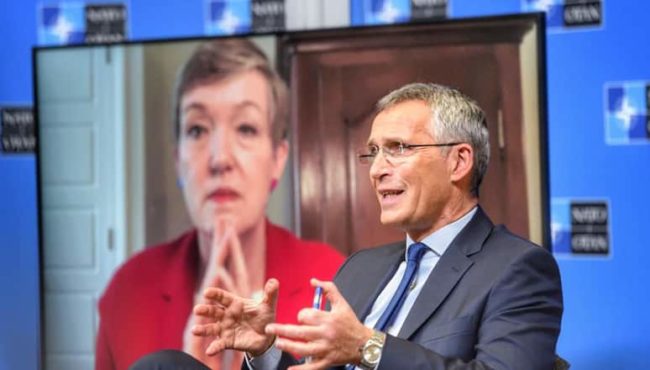Secretary General previews NATO Summit in keynote speech

Secretary General Jens Stoltenberg previewed the 14 June NATO Summit in an online keynote address on Friday (4 June 2021), co-hosted by NATO, the German Council on Foreign Relations, and the Brookings Institution. Describing a world of growing global competition, he explained that ”through NATO 2030, we are adapting to a more competitive world,” adding that “ambitions must be high, as the challenges to our security are great.”
Mr Stoltenberg outlined a number of key decision areas for the Summit, under the NATO 2030 agenda. This includes strengthening NATO as a forum for political consultations; reinforcing collective defence through increased readiness, modernized capabilities, and more investment; and developing Alliance-wide resilience objectives to make societies less vulnerable to attack and coercion. The Secretary General also outlined plans to boost transatlantic innovation, including with a new “defence accelerator” to foster cooperation; work to uphold the rules-based international order, including by deepening partnerships; and plans to step up training and capacity-building for partners. He further explained that NATO must address the security consequences of climate change, by reducing military emissions and contributing to “Net Zero”. Leaders will also agree to develop NATO’s next Strategic Concept, he said.
“To do all of this we need to invest more,” said Mr Stoltenberg, welcoming seven years of consecutive defence spending increases by European Allies and Canada. He added: “we should not only invest more, we should also invest better. That is why we should increase NATO’s common-funded budget.” He explained that this would “help fund more joint training and exercises, stronger cyber defences, cutting-edge capabilities, and more capacity-building for our partners,” calling joint investment a “force multiplier” and a “strong message of unity and resolve”.
The Secretary General noted that new «polling confirms that over 80 percent of our citizens consider the relationship between North America and Europe important in dealing with security challenges,” adding: “this makes an ambitious NATO 2030 agenda even more relevant.”
















